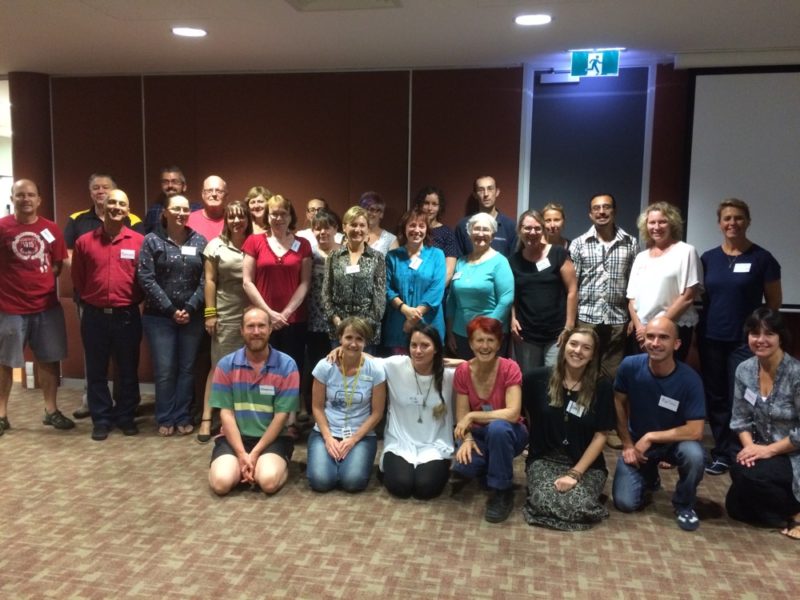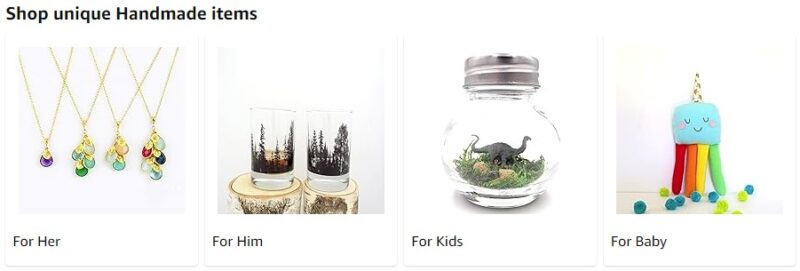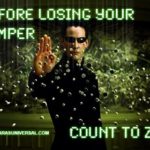
Special thanks to Charles of Terra Perma Design for sharing this. Since I prefer summaries I’ll highlight the important bits in green and underline them. I’m going to do my best to include as many resources and other good stuff. All in all I’ve had a lot of hope restored as I thought nobody else cared to make that extra effort but there are good people out there and lots of good things happening.
Tuesday 1 March 5.30-8.00pm – City of Wanneroo Depot, 1204 Wanneroo Road, Ashby, 6065
• Tour of Depot with information regarding waste/recycling collection, problems and issues.
• Introduction to course, history of waste and disposal with current practices in Perth.
• What is an Earth Carer’s role in waste management and how can the community be involved?
Peg Davies (Waste Education Officer at MRC) Officers from City of Wanneroo and others
Notes:
– We get pens recycled from ink cartridges.
– Coles collect ‘soft and noisy’ plastic like plastic bags and bubble wrap and it gets recycled into outdoor furniture for schools and communities. Click here to see the video
– We learn about recycle, waste and bulk verge trucks. How they work and other good stuff. I’m so glad to hear they do e-waste and textile waste sometimes biannually.
– Even though tetra paks say recyclable they usually get discarded in the process because it’s a chore to separate.
– Now for the bins. Most councils will have a minimum of 2. The green lid (general and compost waste but no glass) and yellow lid (recycling all glass, cans and tins, plastic CONTAINERS only, not plastic bags or caps.) Please remember small items get missed by the machine and take your plastic bags to Coles. Other bins are light green lid (for green waste like things for mulch and garden clippings) and red bins for general waste in which case you would put only compost stuff in the standard green lid bin. Please also not each council has different ways they do things so it’s good to check.
– Shredded paper is no good for recycling as it falls through the machine.
– You can recycle takeaway coffee cups once separated as the bottom is usually cardboard while top is plastic.
– The see through party cups are not really plastic so should go in general waste.
– Story of woman who simple made a change to cloth nappies as store bought ones take DECADES! Jaimini can tell you more.
– Pleasantly surprised by a surprise dinner which was delicious and nutritious.
– Saw some slides on the history of waste and then The Story of Stuff video which was a good reminder.
Saturday 5 March 10am–2.30pm – Resource Recovery Facility, Pederick Road, Neerabup & Tamala Park Landfill site, 1700 Marmion Avenue, Tamala Park, 6303
Tour will include:
• Composting facility.
• Landfill and tip shop.
• Includes discussion on household hazardous waste.
Peg Davies (Waste Education Officer at MRC)
Notes:
– Tour of Neerabup Resource Recovery Facility Centre.
– The visitor part had like a path of graphics that you follow to see the timeline of how a product starts and where it finishes. Home to compost to rubbish.
– Picture of a rubbish monster which sometimes forms when wrong recycling passes through and collects together.
– Process: Truck drops rubbish in hole > Grapple picks it and drops it in the chute > Goes through rotating composter for 3 days > 50 cent sized holes sieve things while remainder goes to Tamala park rubbish tip > Compost gets blasted through a ‘ballistic separator’ so the heavy stuff bounces harder than the light bits > compost is taken anywhere there is a market for.
– We were shown 3 gardens types. 1 – Soil only, 2 – Soil and mulch, 3 – Soil, mulch and compost. The compost one grew bigger things and was noticeably softer to walk on.
– Tour of Tamala Park Recycling Centre, Rubbish Tip, Shop and Transfer Station.
– History, what happens to them, where they go (mostly China) and issues of all the recycling from cooking oil turned into bio-diesel for the trucks they use to recycling bath tiles, mattresses, fridges, wood, tyres… everything you can recycle.
– 48 million tyres disposed annually!!!!
– Rubbish tips are holes dug up and now they’ve started lining the holes before throwing junk in them. It’s lasagne-ed with the limestone that was dug up. Pipes are used to collect the gasses which are mostly methane and CO2 to sell or use for electricity. Fun fact: Flammable part of farts does not smell.
– To clean wet lands special grasses are planted.
– While we have lunch we look at the local garden and how they’ve used stuff from the rubbish to create all sorts of handy compost fridges or creative musical instruments etc.
– Another important note: When you are in public and you use the bins there… it all goes to the rubbish. None of it goes to recycling or any kind of salvage process so if you can take recyclables back home it has a better chance. Even all the stuff in skips go to straight to landfill.
Tuesday 8 March 5.30-8.00pm – City Farm, Lime Street, Off Royal Street East Perth, 6004
• Tour of City Farm.
• Recycling options and gaps, what is/is not available in local areas.
• Local Council recycling services.
• Recycling at work.
• Green/non-toxic cleaning methods.
City Farm staff – Dora Deluca (Permaculture teacher, Manager Wilderness Soc), Peg Davies (MRC)
Notes:
– Perth City Farm history and tour. So much going on and their vision to achieve. P.E.A.C.E. (Permaculture, Education, Arts, Community and Enterprise)
– Plastic that is buried does not contribute to greenhouse gasses.
– Peg takes us through an exercise to sort and place things that are thrown into – Problem, hazardous waste, re-use and recycle sections.
– Enjoy a vegan soup with gluten free bread and lots of fruit.
– With your electronics always take the batteries out, make a collection and take to the recycle place (look up Recycle right app). The batteries get collected, stored and sorted. Rechargeable ones go to France and others go to Singapore and Korea.
– Microbeads are such a big issue for the seas and because we can’t see them we wont see it in the seafood. See?! Microbeads aren’t just just used to bulk up the product. Refuse to buy these as they come in a lot of things like toothpastes, gels, scrubs, etc. (look up Beat the Microbead app).
– Nurdles – bigger microbead versions that fish eat.
– Alternatives to cleaning for home, self, laundry, etc.
– Talks about packaging and how to handle it.
– Beeswax ironed on a cloth can replace cling-film.
– Dora tells us her story. She’s been one of the older players at the Perth City Farm.
– CLAW Environmental operates a plastic recycling in the following areas – 1. Drum Muster – the regional collection and recycling of used agricultural chemical containers, 2. EPS – Expanded Polystyrene recycling, 3. Granulation of locally sourced plastics for local manufacture. 4. Contract shredding and granulation of plastics.
– One of the biggest new problems are the coffee pods and only one place recycles them – Terracycle (http://www.terracycle.com.au/en-AU/brigades/nespresso-coffee-capsule-brigade)
Saturday 12 March 10am-2.00pm – West Leederville Community Garden, 56 Cambridge Street West Leederville, 6007
• Options for domestic organic waste solutions and community responses.
Rob and Brenda from Environment House, Peg Davies (MRC)
Notes:
– Rob from Environment House/Eco Shop talks about compost problems and his solutions and does demos of 3:1 of Green (Nitrogen):Brown (Carbon). Bad smells/sliminess = low oxygen.
– 320kg’s of greenhouse gasses are saved by composting so please turn your food scraps into soil. Solid paper is better recycled if you can otherwise please compost it and especially compost shredded paper. Also wipe fat and oil from pans and put it in the compost too. Don’t let it go down the drain.
– Peg talks about the Bokashi bucket (click for quick video) and gives us handouts. High protein stuff is best to use. The tea/juice is not only good to go on plants but also to clean toilets and drains. White cotton wool mould is good, black and blue not so good. How to bury it, etc.
– Putting your meat scraps in the freezer breaks the cell walls so saves you from chopping them up.
– History about the West Leederville Community Garden.
– Rob talks about worm farms (click for quick video). You can use de-gassed fridges, bath tubs, polystyrene boxes… all sorts as long as you have the basic features for a farm. The sludge at the bottom is best to mix with water so good microbes and chemicals will go deep in the soil when watering. Egg shells are good to balance acidity but crush them first. To start new farms, soak up lots of news paper in water for their food and ‘borrow’ friends worms. Few handfuls with castings, etc will do. Debates on not to put citrus, onions, leeks and chillies but Rob says try it out in corners.
– Fun fact: Untidy webs are usually red-back spider’s webs so now you know.
– Fun fact: Compost worms are nomads while earthworms are found deeper and have tunnels and homes.
– Fun rhyme: Dilution is the solution to pollution. But only in small scale.
Tuesday 15 March 6.00-8.30pm – REmida, 1 Prospect Place West Perth, 6065
• How to use the knowledge at home, work, schools, neighbourhoods and events. Hints, tips and ideas.
• Where to now?
• Tour of REmida and reusing industrial waste.
Kim, Organic Waste Solutions, Earth Carer stories
Notes:
– REmida tour (Name originates in the educational philosophies of Reggio Emilia, in Italy and the Midas touch). It’s a not for profit which gets discarded materials and makes them available to members for art projects etc. They give small companies who participate a red bin and are always looking for volunteers and sometimes pay artists.
– Fun fact: Those spikey rubbery balls that I thought were for stress relief or reflexology are really for clothes dryers.
– I see this amazing shiny silvery net and upon closer inspection it’s really cellophane twisted up. Most probably CD covers and the like.
– Douglas talks about his experience, membership, tools and answers all questions. Says that small business are the ones that help most as big ones have compliance issues.
– Different people talk about support so don’t worry if your peers are looking at you like you’re crazy when you try to do your bit. We are the trailblazers and I got an understanding of why the ‘others’ think I’m the crazy one…. basically waste is NOT COOL and they just want it out of sight kinda thing. (Quick 3 minute video – How to start a movement TED talk)
– Story of Solutions video. Do you want to play the game of more or better?
– Fun fact: 12 letters to the big guys is enough to get noticed.
– How a previous Earth Carer educated people on balloons. Helium or not they are bad! And coffee pods are even worse and should really not have that machine anywhere. The coffee pods info was emphasised more than once in this course.
– How people fit into dreamers, planners, doers and celebrators.
– Success story of Earth Carer solving school lost property and replacing plastic bags with 4 layers of newspaper in their bins. 3 for the sea movement where you look for 3 things to pick up while you’re at the beach. Things like when you carry your wine bottle with you, why not carry it back home where it will be recycled if thrown in your recycling instead of public waste.
– Song: No Such Thing As Waste by Charlie Mgee
Paras note: At the end of each course I’d go home feeling so good that I’m meeting more and more of my kind of nuts but this night was special. Some transformation happened with the trailblazers, waste is not cool angle and videos.
Tuesday 22 March 6.00-8.00pm – Victoria Park Council Offices, 99 Shepperton Road Victoria Park, 6100
• Presentation to graduating Earth Carers.
• Talk on relevant topic.
MRC staff, Guest speaker tba
Notes:
– Mindarie Regional Council CEO Brian Callander talks about past and future of MRC. Presents our graduation certificate, bag and presents.
– Skip bins are better than just plain old bulk verge collection.
– Peg reads a great Buddha story of how 500 garments would be honoured to be used as bed-covers and old bed-covers to pillowcases and old ones to floor covers to foot towels to floor mops.
– Amazing dinner!
– Ex-Earth Carer talks about her 6 years with the crew and inspirational stories about kids going camping. Buying Weigh ‘n Pay lollies to reduce packaging. Buy in bulk. Brining their own cups. They calculated that 250 cups were saved and 50 meters of food wrapping was saved. Also talked about adopt-a-spot.
– You can also report anyone who throws things out of a vehicle.
– Richard from CLAW Environmental talks and presents about recycling plastic and polystyrene. Types of plastics and polystyrene. Separating them, contamination would be mixing the plastics. They go through 17 tons of polystyrene. How they process different plastics. Green polystyrene peanut packaging beads are really starch so just put those in hot water. Microbeads you can see but plastic breaks down into small invisible polymers which you can see.
– Even cigarette butts! Bin your butts as animals think they’re food, they account for 50% of litter in WA, a major cause of domestic and bush fires!
– Anne hands out resources for all sorts of projects.
– Peg closes.
Summary:
We were given quite a bit of material to go through and I’ll do my best to keep adding to this post but if not just look into what you’d like to focus on and Google it as there are so many resources, options and solutions out there. As I write this I’ve already volunteered to do some kids activities about Earth Caring at the International Permaculture Day Mega Meet-up
Other resources:
Earth Carers Notes Pdf
Support material links –
Earth Carers’ Leaflet
Earth Carers’ Handbook
The Useful Book
Down to Earth booklet – All about waste
Down to Earth booklet – All about composting
Down to Earth booklet – Guide to setting up a worm farm
Down to Earth booklet – Guide to setting up a no-dig garden
Down to Earth booklet – All about spreading the word
Find the Down to Earth Video Series here – https://www.parasuniversal.com/2018/12/down-to-earth-an-earth-works-learners-guide-waste-recycling-compost-worm-farms-no-dig-gardens/
Amazon #ads

A short course on caring for the earth, for free. Peg Davies teaching us all about where things go in the waste world &…




